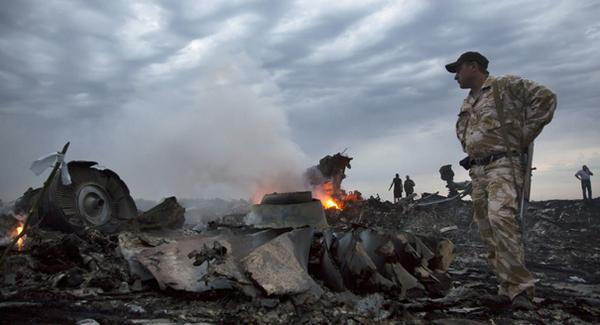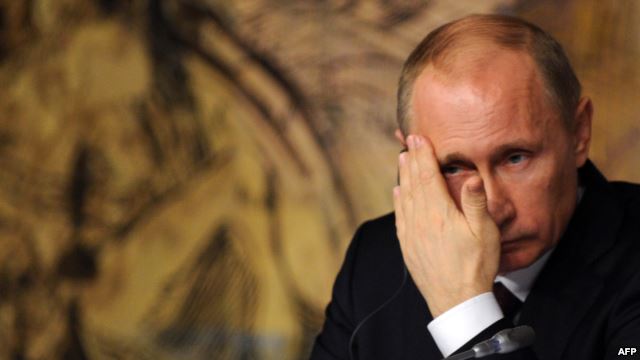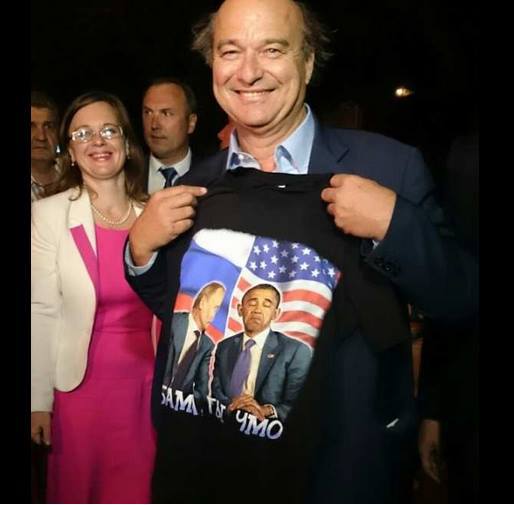America’s freshly appointed “Special Representative for Ukraine Negotiations” Kurt Volker visited the war zone in East-Ukraine in late July. In the warn-torn village of Avdiivka he made some remarkable statements: the conflict is not “frozen, but a hot war” and “it is America’s main task to restore Ukraine’s integrity and sovereignty.”
That is a fully different language than could be heard during the Obama presidency. Then the word "war" was not uttered, effective military support was withheld from Ukraine, and the solution of the conflict was left to the warring factions, supplanted by Germany and France.Minsk II is an incoherent patchwork of obligations for the fighting parties which could only work to the advantage of Russia
That this could not work becomes clear from the so-called “Minsk II agreement” of February 2015. Under pressure from a heavy military offensive in eastern Ukraine, Ukrainian President Poroshenko was forced to eventually agree with this document that was co-signed by Germany, France, and Russia.
Minsk II is an incoherent patchwork of obligations for the fighting parties which could only work to the advantage of Russia, as the situation on the ground in Donbas shows: there is no cease-fire, but daily heavy fighting, Ukrainian soldiers continue to fall in battle (more than 3600 since April 2014, nine alone in the previous month), there are still thousands of Russian troops on Ukrainian territory, Russia supported "rebels" continue to use their Russia-supplied heavy military equipment, Russia continues to control 450 kilometers of Ukraine’s border and a self-appointed clique of renegades continues to dictate the course of events in the so-called Donetsk and Luhansk “republics.”
Volker’s appointment is positive because it makes clear that the US will finally get involved in the conflict. There is also the personality of Volker himself, a professional diplomat with many years experience regarding Nato and Europe who was ambassador to Nato under President George Bush Jr.
Both Washington and Moscow view him as a Russia-hawk with a strong belief in diplomacy. American foreign policy experts know him as an experienced, tough diplomat who knows how to translate principles and pragmatism into effective policy. He is respected by Republicans and Democrats alike.
Some of Volker’s earlier statements give an insight into his views on Russia: “Russia has sought to overturn the post-Cold-War settlement of Europe by redrawing borders using military force. Russian forces occupy parts of Ukraine, Georgia, and Moldova, and in a brazen show of force, Russia simply annexed the Crimean peninsula” (statement to the Senate’s Foreign Relations Committee last April). “The United States should also continue to raise the sanctions stakes on Russia. Travel and financial sanctions on Putin and his family would be appropriate at this point”….“Only through steadfast resolve . . . can we convince Putin that the costs to him personally, and to Russia, are unbearable” (in Foreign Policy magazine).
Volker started off his mission with vigor. After his visit to the frontline in Donbas he traveled to Kyiv, next he met in Paris with French and German government representatives and concluded his trip in Brussels for consultations with NATO and the EU.
Ukraine is understandably very pleased with the long overdue change in America’s Ukraine policy. France and Germany welcome a more forceful US involvement as well. They never succeeded in breaking the deadlock that the Minsk II agreement embodies. Each new round of consultations between the four Minsk-parties did nothing more than repeating what is written in the original Minsk II document. German Chancellor Merkel reportedly asked the Trump administration for the appointment of a special representative.
For Ukraine and Western Europe, it is essential that Volker’s involvement leads to a withdrawal of the Russian military, "volunteers," and weaponry from Donbas and to Ukraine regaining full control of its border with Russia. Once that has been achieved a beginning can be made with the implementation of administrative decentralization in the region. The first experiences with decentralization in other Ukrainian regions are positive. There is no reason why that should be different in Donbas.
No one would seem to be better equipped to untie the Gordian knot of Minsk II than Kurt Volker. The weight and complexity of his task make, however, that success remains far from assured.






